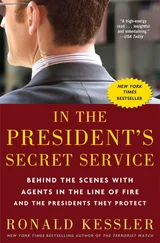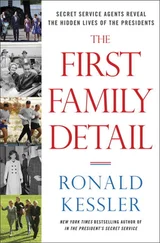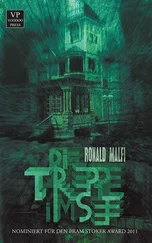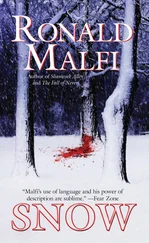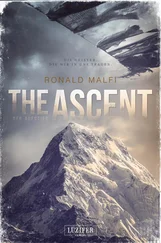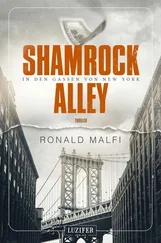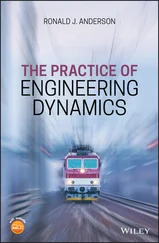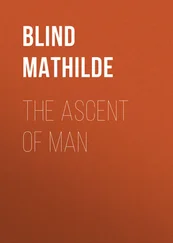She crossed the room and tossed a DVD case in my lap.
“Rear Window,” I said. “Hysterical. Don’t let anyone ever tell you that you’ve got a lousy sense of humor.”
“Did you see the boats?” she said, returning to the kitchen.
“What boats?”
“They’re gearing up for some big race. People from all over the country are in town. You should see the size of the boats down at Ego Alley.”
Ego Alley was what the locals called the downtown dock, where all the silver-haired, retired Annapolis moguls coasted by on their enormous boats, their chests puffed out, while bikini-clad, amber-skinned women decorated the decks. If one were to look closely at these men, it was almost possible to spot a fan of peacock feathers sprouting from their asses.
I piloted my wheelchair back onto the deck, snatching the bottle of Macallan as I went. Sure enough, I could make out a cluster of white sails farther down the shoreline. Uncorking the bottle, I brought the scotch to my lips and took a quick swig. Marta had stopped reprimanding me for drinking while on pain medication, knowing damn well I’d sooner give up the meds than the whiskey. When she caught me now, she would only shake her head like someone who’d just heard of a terrible automobile accident on the news.
It had been six months since the incident at the cave and four months since the last of my surgeries. The result was a steel plate and a dozen or so stainless steel screws drilled into the bones of my left leg. Such things were beyond the assistance of simple pain medication; such things were beyond mere pain .
“Is this a new one?” she called from inside.
I craned my neck to find her standing in the vestibule, holding an envelope.
“Another one from New York?”
“They’re always from New York,” I reminded her.
“You didn’t even open it.”
I took another drink from the bottle and watched a pair of Jet Skis carve white tracks of froth across the surface of the bay.
Marta came up behind me, fanning herself with the envelope. “Can I open it?”
“Be my guest.”
She tore open the envelope, depositing a pigtail curl of white paper into my lap, and read the contents of the letter out loud. She’d gotten only partway when she stopped reading and said without humor, “What’s the matter with you? These guys are making a great offer. They want to fly you out and discuss it. Oh, shit. What’s the date?”
“Don’t really know.”
“Damn it. They wanted you to go out last week . You missed it.”
I shrugged. “Doesn’t matter.”
“Right,” she said. “Nothing matters. This letter doesn’t matter and neither do any of the others that came before it. There’s a stack of them in a shoe box under your bed, you know.”
“I thought you threw them away.”
“Why would you think that? You never asked what I did with them, and I never told you.”
“Why are you making a big deal about this all of a sudden?”
Marta crinkled the letter into a ball and dropped it in my lap. I could tell, even without peeling apart the ball, that it had been typed on expensive paper. Probably watermarked, with an upraised crest in the header.
“Because it’s been too long,” she said, slipping into the apartment. “Too much time has gone by, and you haven’t done anything to get back on track.”
I turned the wheelchair around and followed her inside. “It was never my intention to get back on that track.”
“Well, you need some track. This place is a dump, and you’re running out of money.”
That much was true. Since the accident, I hadn’t been able to teach at the college. I’d attempted to provide students with an online seminar for the semester—something I could teach via the Internet and a digital camera three nights a week—but I was not a very good lecturer. And it was next to impossible to teach an art class over the Internet. Fortunately I was able to take a sabbatical while I recuperated, and I’d spent the past six months watching DVDs and in the evenings crutching from bar to bar through downtown Annapolis.
“I told you,” I said, not knowing if I’d ever said these words to her or not, “I can’t do it anymore. It’s left me.”
“Are you so sure? When was the last time you even tried sculpting something?”
“Before the accident, I was sculpting every day in class—”
“I don’t mean at the college. I mean for real, in real life. Not something that takes you fifty minutes to mold out of clay. I’m talking about the kind of sculpting you used to do before I knew you. The work that made you happy and got your face on the cover of that magazine you’ve got framed …” She glanced at the empty square of wall beside the front door—the spot where a crooked little nail jutted erect, suddenly so obvious I was surprised she hadn’t noticed earlier. “Why did you take it down?”
“It accidentally fell and broke,” I said. This was only partially true.
Seemingly defeated, she flopped onto the sofa. She looked like she wanted to hit me. Instead, she shook her head, something like a coy smile teasing the corners of her mouth. She brought her hands up and rested her chin on them. A spray of freckles covered her arms.
“Let’s play,” I said, placing the bottle of Macallan on the floor. I started setting up the chessboard that sat on the coffee table between us.
“No.” Marta stood.
“What?”
“I’ve got a date.”
“No shit?”
“You always sound surprised.”
“I always am. Who is he?”
“He’s no one you know.”
“That’s not what I meant. What does he do?”
“He’s a bartender.”
“Maybe I do know him.”
“Ha. Seriously, he’s just a nice guy, nothing fantastic. But I’m not getting any younger.”
“So you’re thinking a bartender’s the way to go, huh?”
“Cool it. I’m watching my life tick by.” And for whatever reason, this statement caused something to turn over inside her—that much was evident by the change in her expression—and she cocked her hip and looked at me from beneath her brow. “What the hell possessed you to explore the cave on your own that day?”
In all this time, she’d never asked the question. Right now my answer was a long time coming. “Guess I was just looking for something,” I said, continuing to set up the chessboard. I would play by myself if I couldn’t convince Marta to stay.
“Looking for what?”
I shrugged. “Can’t answer that.”
“Can’t? Why not? Someone holding a gun to your head? Or is it some vast government secret?”
“The latter one sounds cool. Let’s go with that.”
“Christ, Tim. Sometimes you’re just goddamn impossible.”
I almost told her about Hannah right then—about how it was Hannah’s ghost that had helped me out of the cave and beckoned me toward the highway. I would have never found that highway on my own, and I surely would have died in that cave if not for Hannah.
But I kept my mouth shut, not wanting to discuss such things, because that story was connected to another story, a current story, and I didn’t want to tell that one at all. Given the physical and psychological stress my body had been under at the time of the accident, seeing Hannah’s ghost was easily explained away. Her image was a figment of my imagination, summoned from the depths of my memories to the forefront of my world while in a state of excruciating pain and the onset of hypothermia. I could have claimed to have been led from the cave by Elvis, and it could be blown off with a subtle grin and a wave of the hand. That wasn’t the problem. The problem was where the story led me—to the here and now—and how such claims were no longer dismissed as easily.
Читать дальше



